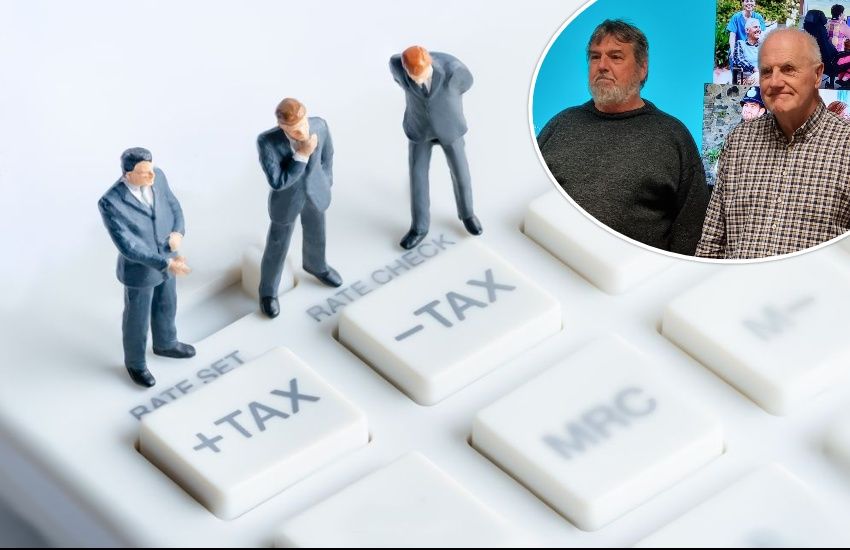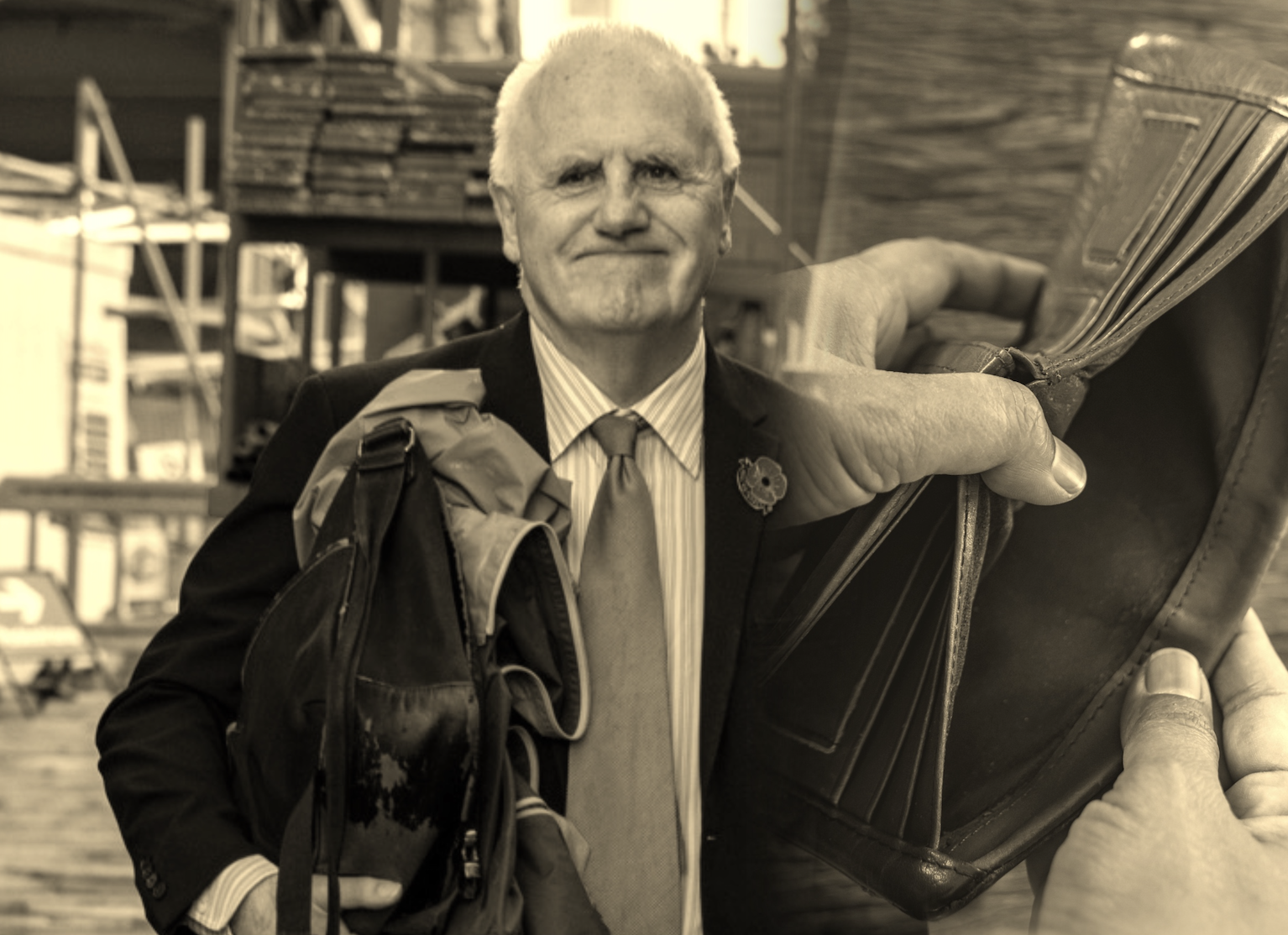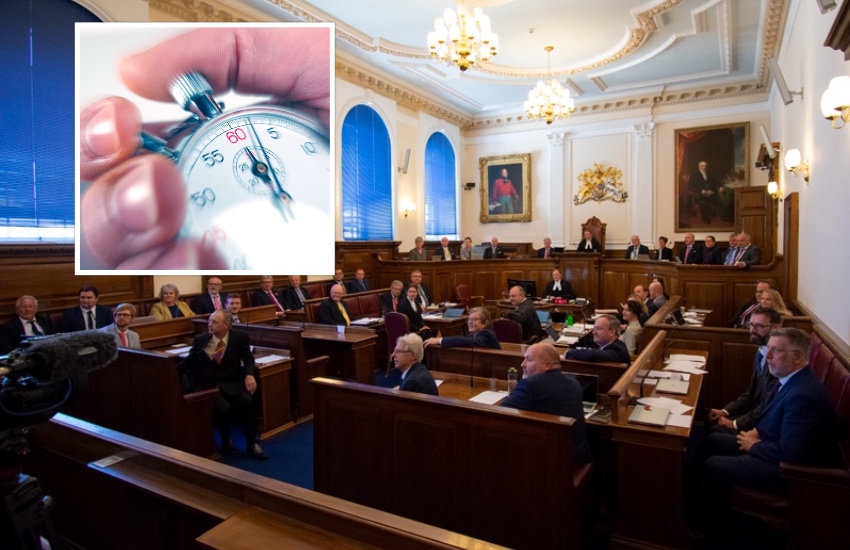


Capturing more people through a consumption tax and overhauling the social security system are seen as the primary way to prevent "shocking" cuts to essential public services by senior politicians.
The States had projected a gap between spending and income of £85m per year each year in September 2021, but its most recent forecasts have suggested the gap is closer to £100m.
The Policy & Resources Committee have also admitted defeat on creating significant savings through public sector reform alone, once hoping that £10m per year could be saved in this way. We’re told there’s ‘no more fat to trim’ without unpalatable cuts to services.
Here, Express takes a look at how P&R think our futures should be funded and why, and the consequences of doing nothing.

Pictured: Policy & Resources, the island's most senior political committee.
People are living longer and having fewer children. Therefore, fewer people are working and paying income taxes, and older people rely more heavily on public services which are funded by tax revenues.
The States project that the number of people over 65, which is currently at an all-time high, could rise by a further 5,500 in the next two decades. The number of people of working age is also forecast to fall in that time period.
The average cost of public services per person is estimated to be £11,000 per year. With a population of approximately 63,000, this means the annual of maintaining public services is nearly £700million.
The average taxpayer on median earnings – about £37,000 per year - pays substantially less tax than the average cost per person of running the island's public services at around £7,000, including all taxes and social security contributions.
The States say that one person who pays £7,000 in tax in a year has paid the equivalent of the cost of sending a child to secondary school for around two terms only.
Policy & Resources is advising the Bailiwick that “a package of reforms, including a goods and services tax, is the best way to safeguard public services now and for generations to come".
Pictured: This leaflet will begin arriving at people's homes from today.
P&R hope this package will raise between £50-60m per year, but say that “there are risks that the outcome will be better or worse than expected because of factors that may be difficult to predict or control”.
It’s anticipated that the introduction of secondary pensions will cost £9m before becoming revenue neutral. Increased demand for health and social care could cost £45-£65m between 2023 and 2040.
In that same period, tens of millions are expected to be lost in States’ investment returns, whilst balancing pensions and long-term care could cost £20m.
Higher net migration and productivity, corporate taxation and smaller motoring and environmental taxes could raise a combined £50m, but are generally seen to be unsustainable and insufficient to balance the books by the senior committee.
Therefore, GST is seen as the principal way to sustainably raise the majority of extra cash required, with the other measures proposed to make it fairer and less hard-hitting to the bottom 60% of households it would affect.
P&R also hope to raise £6m from visitors and non-residents in this way who currently do not contribute anything to the tax coffers whilst in the island.

Pictured: Deputy Peter Ferbrache will lead the package in the States in January.
Deputy Peter Ferbrache, President of the Policy & Resources Committee, says that “nobody is desirous and punching the air” about increasing taxes, “but our position in relation to the tax situation is very difficult indeed”.
“Most lower- and middle-income households will be better off. We don’t pretend they’re going to be much better off because the idea is to increase taxes, but at least they won’t be worse off, which is the best we can do. The burden will fall, as it should, on those who can afford it more.
“You’ve got to get to percentile 60-64 before you are worse off under these proposals. At that level… you are slightly worse off. You’ve got to get two adults with an income of £100,000 before you are more than 1% worse off. Quite rightly, the richest 5% will pay the most.
“It will create inflation for 12 months. That’s why there’s going to be the increase in pensions and income support to cover that. It’s 3.4% anticipated. After that, we’re advised it’s not inflationary.
“If, pro rata, we had the same percentage [of tax collection] as Jersey, we would have another just over £100m in tax. I know nobody appreciates this, but we are undertaxed compared with our neighbouring jurisdictions.

Pictured: Deputy Peter Roffey thinks the package protects those who are least able to pay.
Deputy Peter Roffey, President of the Committee for Employment & Social Security, is in lockstep with Deputy Ferbrache over the package adding: “To my mind, the social security changes are just as consequential and just as important as the tax changes.
“Our current social security system, for historical reasons and happenstance and the way it’s grown, is really not fair and really not at all progressive. Individuals and households on identical incomes can be charged wildly different amounts of social security depending on how their income is arrived at. We want to have a system where you pay in relation to your income
“There is a threshold below which you don’t pay Social Security… but the second you go over that, you don’t pay Social Security contributions just on the amount you earn above that threshold – you pay it on every single pound you earn from the first pound, which makes it incredibly hard on low and middle earners.
“The real heavy lifting in mitigation is being done by bringing in a personal allowance on Social Security.
“I think there does need to be a wake-up call. I don’t need to patronise the people of Guernsey, but I think the sense of entitlement to really high-quality services while having very low taxation – far lower than Jersey or the Isle of Man – really was born out of a finance sector boom when lots of money was coming in from corporate tax. Now I think we need an adjustment to reality and this is that adjustment.”

Pictured: The debate is set to occur at the end of January 2023.
Both Deputies Ferbrache and Roffey warned of severe consequences to Committee budgets if long-term funding solutions are not agreed.
During the drafting process, P&R asked the major States’ Committees to identify where and how budget savings could be made at rates of 5%, 10% and 15%.
P&R claim that if the projected shortfall was to be remedied by budget cuts alone then approximately 13% would need to be reduced across the States.
In the worst case scenario, HSC would need to shed up to £29.7m, ESC £12.6m, and ESS £11.5m.
Most Committee’s said that restrictions or reductions in public services were the most feasible way to save costs such as removing grants, reducing benefits or introducing means-testing, cutting bus timetables, not cleaning beaches and pathways, and reviewing NICE TA drugs.
E&I said it preferred revenue raising measures over budget cuts by charging for roadworks and parking suspensions, for corporate and commuter parking “in some locations”, and for school bus services.

Pictured: Public finances pay for everything from civil servants to hospital equipment and infrastructure.
Deputy Roffey said the consequences of raising taxes “pales to what would happen over the next few years and the grief we would get from our community if we tried to balance the books through slashing public services”.
“I think it’s Third World stuff if we have to remove 10% or 15% from our services then it’s going to be absolutely shocking…. I know that’s some people’s preference, but it’s not mine, and I think this is definitely the lesser of those two evils.”
Deputy Ferbrache warned that the States will have no choice but to go through with serious cuts if revenue raising measures are not agreed.
“Those of you who think we’re not of a mind to do that will find that we’re very much of a mind to do it because we’ll have no option,” he said.
Tax plan includes 5% GST - but P&R says most families will be better off
"Unacceptable" and "damaging" service cuts if States reject GST
Comments
Comments on this story express the views of the commentator only, not Bailiwick Publishing. We are unable to guarantee the accuracy of any of those comments.